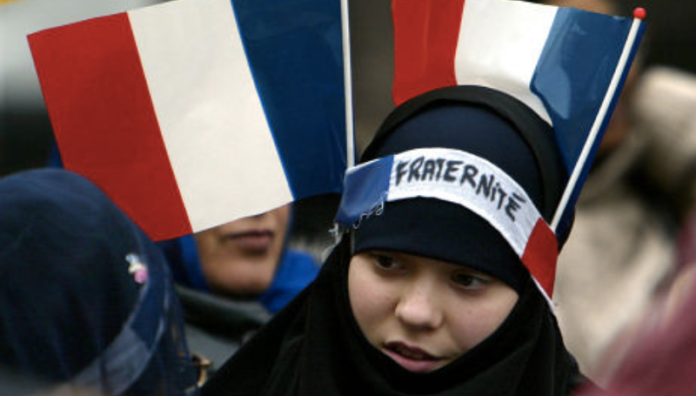Martha Lee
Middle East Quarterly, Summer 2022
“In contrast to the manifesto’s assertion that “ideas have consequences” and that “universities have an essential role to play in the struggle to defend secularism and freedom of speech,” the CPU insisted that “research isn’t responsible for the ills of society, it analyzes them”; hence, “universities cannot be considered accomplices of terrorism.”
On October 16, 2020, French schoolteacher Samuel Paty was beheaded by an Islamist zealot after showing Charlie Hebdo cartoons of the prophet Muhammad to his class. Some two weeks later, one hundred French “professors and researchers of various sensitivities” published the “Manifesto of the Hundred” in France’s foremost daily, Le Monde, denouncing French academia’s persistent denial of Islamism and its menace.[1]
Sparking a string of heated counter-responses, the dispute not only underscored the campus fight between contending approaches to Islamism but also the transformation of French universities into a battleground between those seeking to preserve France’s universalist and secularist values and proponents of “multicultural” and “decolonization” theories, which often view Islamism as a legitimate response to long-standing white colonial oppression. Because France has one of the largest Muslim communities in Europe and its universities are widely seen as guardians and transmitters of the nation’s universalist values, the outcome of the recent dispute is bound to have far-reaching implications.
The Islamism Debate
Paty’s beheading shocked French society and produced a broad bipartisan pledge to defend secularism and freedom of speech in the face of an Islamist threat. The Manifesto of the Hundred condemned the reluctance of most universities and academic associations, including the Conference of University Presidents (CPU)—the organization of French universities—to blame Islamism for the atrocity and criticized their use of such general terms as “fanaticism” or “obscurantism.” The signatories ascribed this failure to the importation to French campuses of fashionable fads, notably “decolonization” and “multicultural” theories that fan hatred of “Whites” and of France. They urged the minister of higher education to put in place measures to detect drifts toward Islamism, to negate its underlying precepts, and to involve French universities in the struggle for secularism and freedom of speech by creating a body responsible for reporting violations of the republic’s universalist values.[2]
To Read the full article, click here






